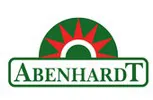Until a few years ago, the Abenhardt vegetable farm was completely devoted to carrots. In addition to conventional and organically produced carrots, the innovative family business based in Datteln now also produces and packages organic Hokkaido and zucchini for trade throughout Germany. "The carrot is still our core competence and should remain so. We have invested a great deal in appropriate technology and have built up good contacts with the food retail market over decades with this volume item and have found our position in the market," explains Managing Director Carsten Abenhardt as he takes us on a tour of the plant.
Click here to see the full photo report.
In addition to field-fresh carrots for the retail trade, the so-called oversized carrots have also been cut into pieces for several years, which are then in turn used by processing companies or wholesale companies as an ingredient in ready-to-eat salads or ready-to-eat cuts, Abenhardt describes. "Here, too, we see a growing market. We supply other residual quantities that are no longer suitable for the fresh market at all to frozen food manufacturers, so the bottom line is that everything is recycled. We even have a customer who processes carrots into schnapps."
 Carsten Abenhardt is now the 3rd generation to run the family business.
Carsten Abenhardt is now the 3rd generation to run the family business.
The Abenhardt farm looks back on a long tradition in vegetable production and has also been certified organic for 30 years now. Today, the company is able to supply the trade with both conventional and organic carrots twelve months a year. In addition to their own harvests, they also use stored carrots from other growing regions in Germany as well as imported goods from Spain, southern France and Israel. Abenhardt: "However, we are tending to focus more on German stored carrots and have therefore expanded our capacity once again, so that we can now store 35,000 wooden boxes. This has meant that these days we can offer German carrots from July 1 into May."
 Thanks to fleece and film covering, the first, early pumpkin crops could already be harvested on July 20. One starts now successively into the large autumn actions.
Thanks to fleece and film covering, the first, early pumpkin crops could already be harvested on July 20. One starts now successively into the large autumn actions.
Nevertheless, Abenhardt has gradually diversified its range of products in recent years. "We have recognized for ourselves that it is difficult to continue growing with carrots alone. Since 2016, we have had our own organic farm, BioGut Schulze Altcappenberg KG, and we then looked around for possible new crops so that the organic area could hold its own in the future. Although we also produce beet, onions and sweet corn, we have focused our capacity primarily on growing organic hokkaido and zucchini. Another important reason for this was that the carrot season is traditionally somewhat weaker in the summer, which is why customers then lack pallets in transport. We can supplement this with zucchini in the summer and Hokkaido later in the fall. As soon as the pumpkin season comes to an end, we start the carrot season again. That way, we always get our shipping volume covered."
 Insight into carrot grading
Insight into carrot grading
Innovations and investments
In order to be able to make workflows more efficient and meet the high demands of food retailers in the future, innovations and investments are unavoidable, Abenhardt continues. "Among other things, we have an autonomous chopping robot in operation and also rely on advanced labeling technology. Our organic pumpkins are labeled using gentle laser technology called natural branding, while organic zucchinis have been banded two at a time since 2021. Optical sorting on carrots is also something we have in place and plan to expand."
 Banded organic zucchinis in packs of 2.
Banded organic zucchinis in packs of 2.
For more information:
Carsten Abenhardt
Abenhardt GmbH & Co. KG
Markfelder Straße 15
D - 45711 Datteln
Phone: +49 (0) 2363 / 3659870
Fax: +49 (0) 2363 / 8362
Email: info@abenhardt.de
www.abenhardt.de
Biogut Schulze Altcappenberg KG
Lünener Str. 30
59379 Selm
T: +49 2592 61122
